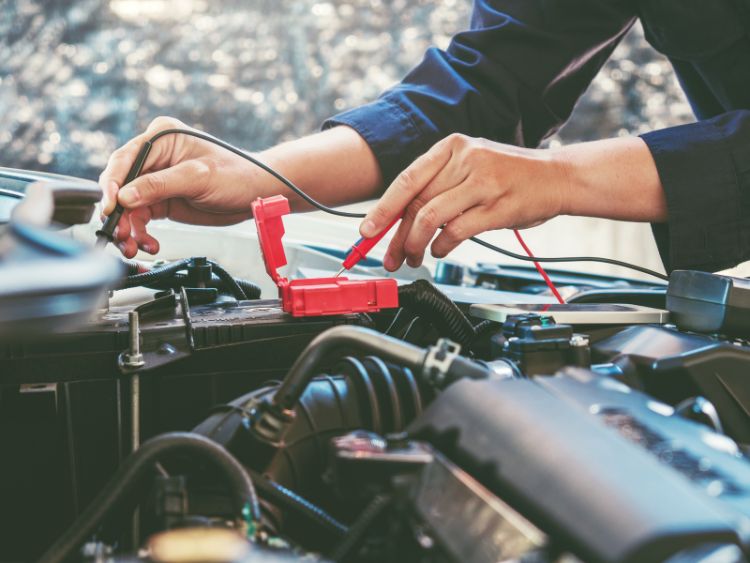Navigating the complex world of auto electrical parts can be a daunting task, even for seasoned car enthusiasts. This article will explore the critical components that make up your vehicle’s electrical system, offering insights into their functions, maintenance tips, and troubleshooting advice. Whether you’re a novice looking to understand your car better or an experienced mechanic honing your skills, this guide will equip you with the knowledge you need to tackle any electrical issues your vehicle might face.
Cars are increasingly becoming a complex interplay of mechanical and electrical systems. The growth in automotive technology has expanded the role of electrical components in vehicles. Understanding these parts not only helps in maintaining your vehicle but also enhances its performance and extends its lifespan. Let’s dive into the electrifying world of auto electrical parts, exploring everything from batteries and alternators to sophisticated sensors and wiring harnesses.
What Are Auto Electrical Parts?
Auto electrical parts refer to any component of a vehicle’s system that relies on electrical power to function. These components are integral to the operation of your vehicle, affecting aspects from starting the engine to powering accessories like headlights and radios. Here’s a rundown of some key electrical parts in modern vehicles:
- Battery: The cornerstone of your car’s electrical system, providing the necessary power to start the engine and powering all electronic accessories when the engine is off.
- Alternator: Responsible for charging the battery while your car is running and powering the electrical system.
- Starter: A motor that initiates your engine’s operation when you turn the ignition key.
- Sensors: Various sensors monitor and adjust engine parameters for optimal performance and emissions.
- Fuses and Relays: Protect your car’s electrical circuits, ensuring safe operation under load.
- Wiring Harness: A network of wires that transmits current to various components of the vehicle.
Understanding these components and their roles will significantly enhance your ability to maintain and troubleshoot your vehicle’s electrical system.
Maintaining Your Vehicle’s Electrical System
To keep your vehicle running smoothly, regular maintenance of the electrical system is crucial. Here are some tips to help you maintain optimal performance:
- Regular Battery Checks: Ensure your battery’s health by checking its charge and cleaning terminals to prevent corrosion.
- Inspect the Alternator: Keep an eye on the alternator’s performance to ensure it provides a consistent charge to the battery.
- Secure Connections: Check all electrical connections, including the wiring harness and grounding cables, to ensure they are secure and undamaged.
- Regular Sensor Checks: Sensors need regular cleaning and occasional replacement to function correctly.
Incorporating these maintenance practices will help you avoid common electrical issues and extend the life of your vehicle’s components.
Troubleshooting Common Electrical Issues
Even with diligent maintenance, electrical problems can arise. Here’s how to troubleshoot some common issues:
- Battery Drain: If your battery repeatedly dies, check for faulty components like the alternator or issues like parasitic drains.
- Flickering Lights: This could indicate a problem with the alternator’s output or loose electrical connections.
- Non-starting Engine: Often due to issues with the starter motor or a dead battery. Check both components if you’re having trouble starting your car.
By understanding these troubleshooting steps, you can quickly address issues and prevent further damage to your vehicle’s electrical system.
FAQs About Auto Electrical Parts
Q1: How often should I replace my car battery?
A1: Most car batteries need replacement every 3-5 years, but this can vary based on usage and climate.
Q2: What signs indicate alternator problems?
A2: Warning signs include dimming lights, battery warning lights on the dashboard, and weak or slow cranking when starting the car.
Q3: Can I handle electrical repairs on my own?
A3: Many minor repairs, like replacing fuses and light bulbs, are manageable. However, more complex issues, such as rewiring or component replacements, might require professional help.
Summary
Understanding the intricacies of auto electrical parts is essential for any car owner. From maintaining your vehicle’s battery and alternator to troubleshooting sensors and starters, each component plays a vital role in your vehicle’s overall performance. By keeping informed and proactive about your vehicle’s electrical system, you ensure its reliability, safety, and longevity. Remember, while some issues are simple to fix, others might require an expert’s touch, so don’t hesitate to consult with a professional when needed. Happy motoring!
